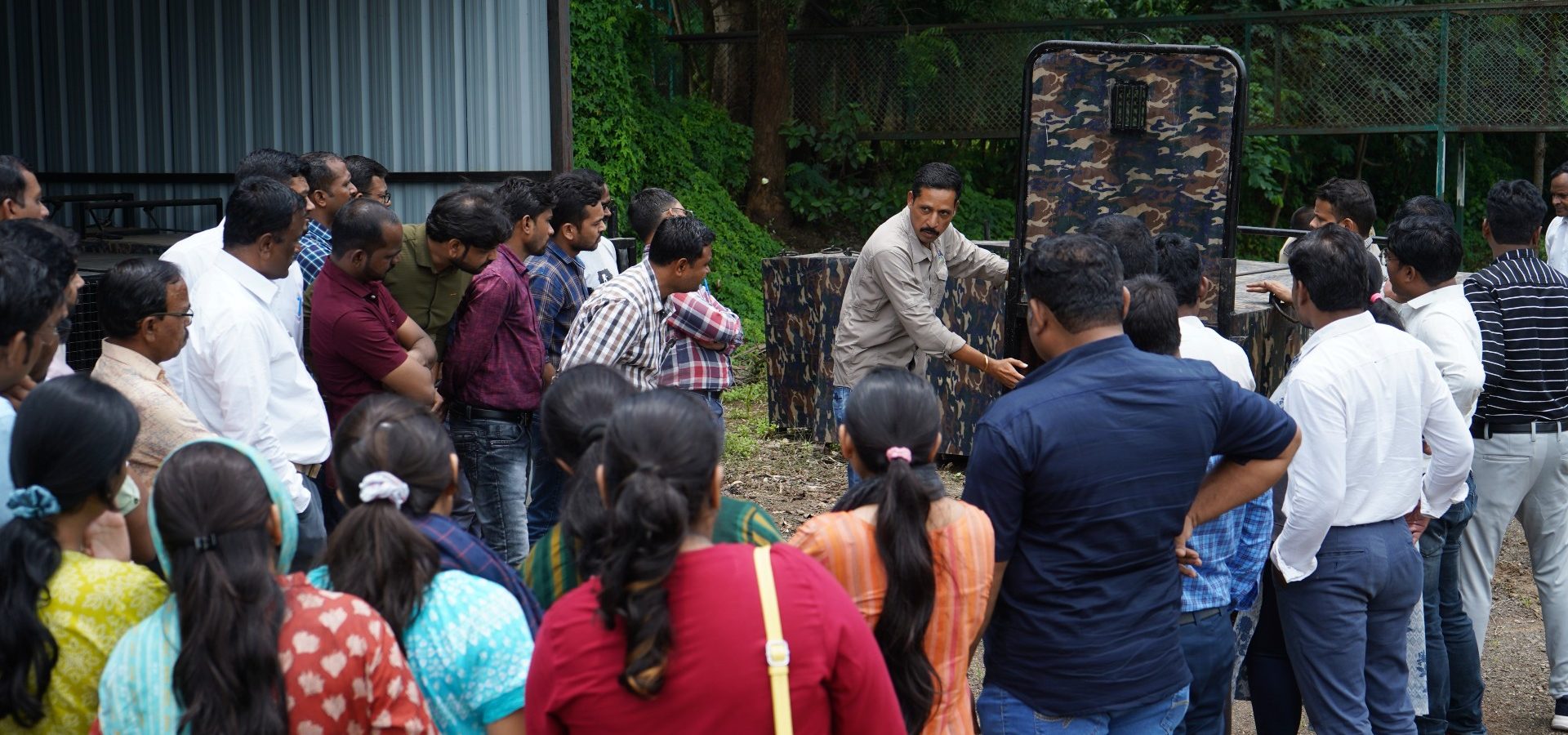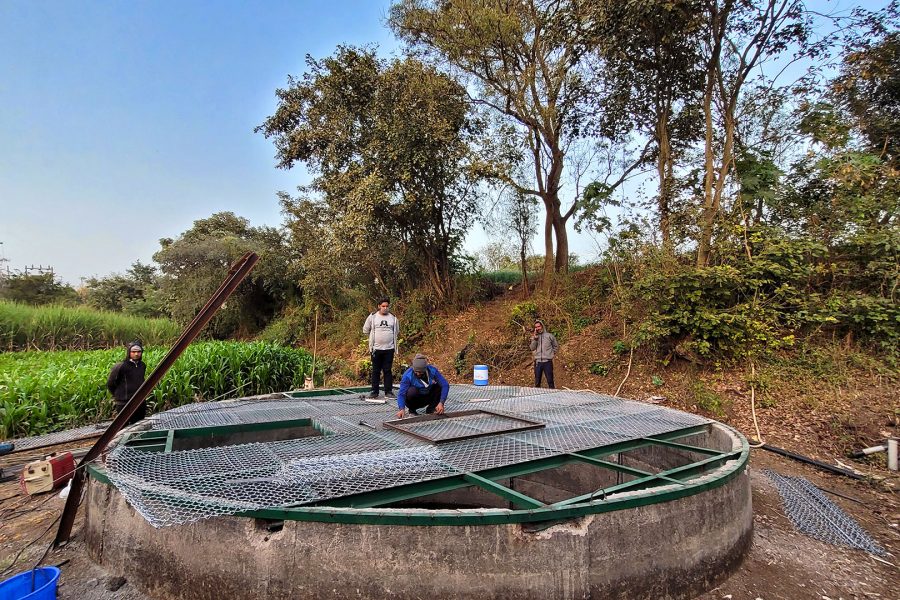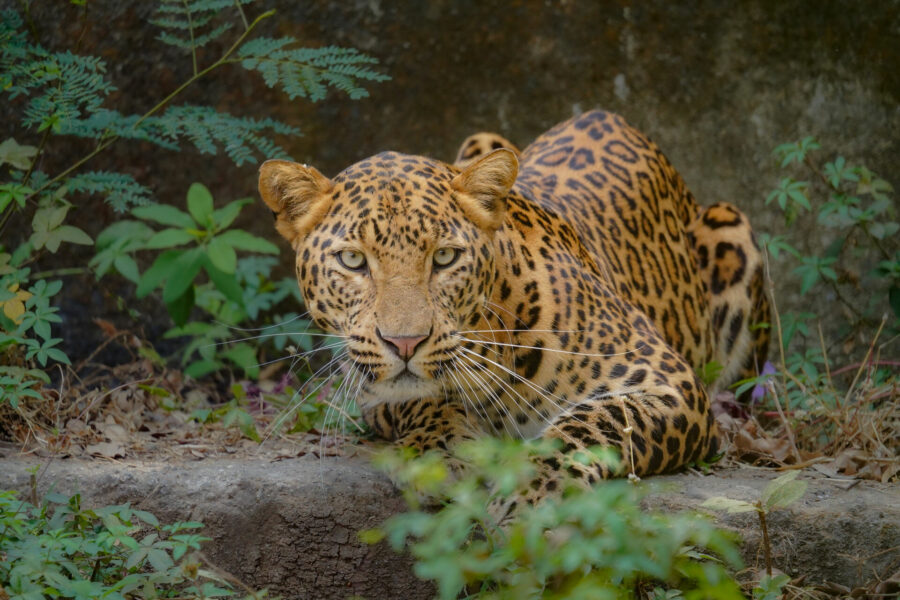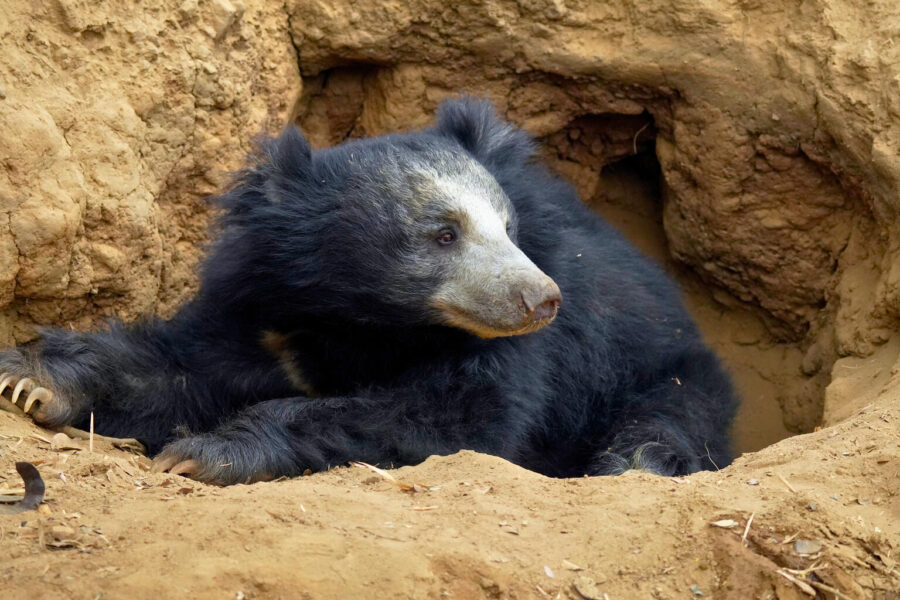As a knowledge sharing effort, a team of veterinary officers working in the field of livestock development recently visited the Manikdoh Leopard Rescue Centre (MLRC) in Maharashtra for a training workshop. Organised with the help of the Yashada Training Centre in Pune, the workshop’s intention was to coach the group of veterinarians on effective ways to tackle wildlife in emergency situations.
Though the attending veterinary officers regularly dealt with farm animals such as cows, pigs, sheep and goats, it was essential for them to be prepared to deal with wild animals in case of emergencies. Be it the tricky situation of human-leopard conflict or an urgent rescue of a tiger, these veterinarians were imparted training to ensure that they can be called in for assistance at short notice.
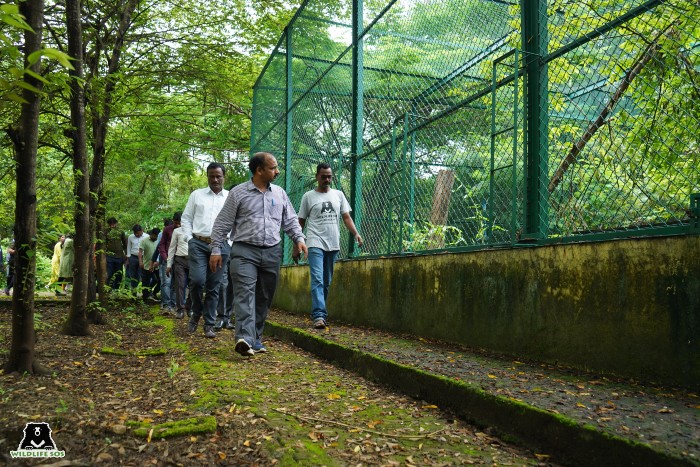
The veterinary officers reached MLRC early in the morning on 5th August. They were first given a tour of the centre by Mahendra Dhore, Project Manager – Wildlife SOS. He spoke to them about the management and maintenance of the rehabilitation centre that ensures its smooth functioning.
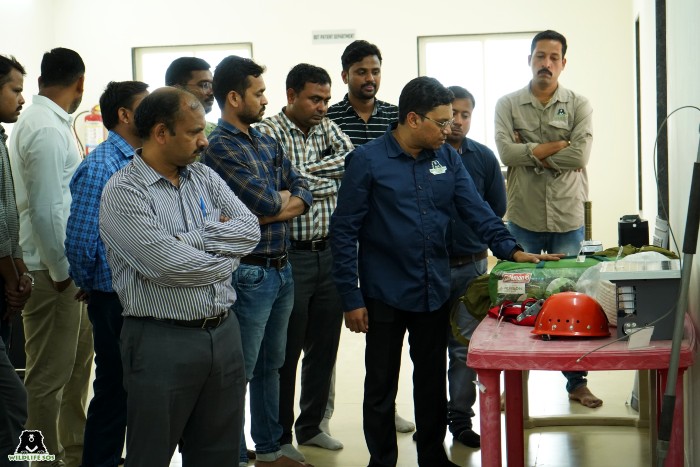
Thereafter, the veterinary officer at Wildlife SOS, Dr. Chandan Sawane, spoke about human-wildlife conflict in India. He demonstrated the use of various equipment used in field situations, such as a blowpipe, tranquiliser gun, anaesthetics, trap cages and cameras. He also elaborated on the methods to tranquilise a wild animal on the field.
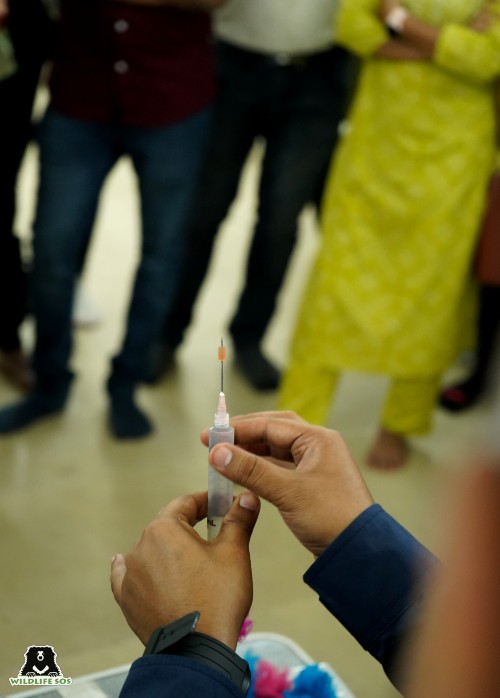
While one can accurately take the weight of a leopard residing at a rehabilitation centre, it becomes difficult to prescribe dosage based on body weight when the animal is on field. It is, therefore, important to know how to estimate the weight of a leopard, while taking into consideration other factors like nutrition, gender and pregnancy. Dr. Chandan Sawane spoke in detail about how to tranquilise a leopard with a dart and the type of medication to use.
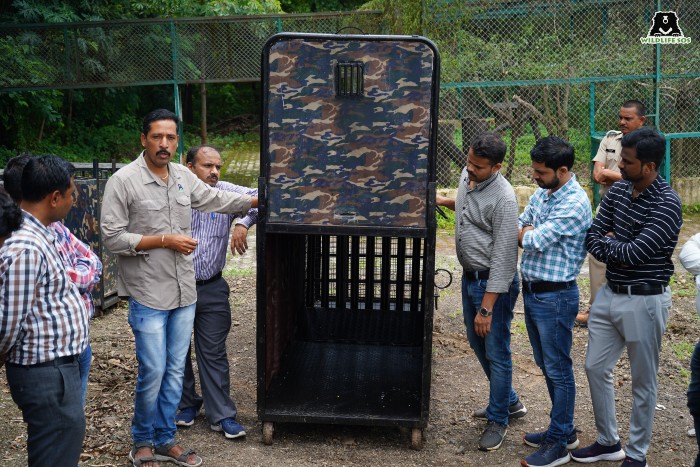
Afterwards, the team bought out other equipment like trap cages and rescue gear, and Mahendra Dhore spoke about how vital these are to assist the team in safely extricating the felines. The veterinary officers were quite intrigued by the contents of the program, as it was a change of pace from working with domestic animals. They were highly familiar with most of the equipment such as the x-ray machines or scanners used in regular treatments. What piqued their interest the most was the use of the tranquiliser and blowpipes which are not as commonly used when working with domestic animals. They threw a lot of questions at our team, especially about the dosage of medication to be used in blow-darts, keeping the team on their toes throughout the session. This exchange of knowledge between people working in the field of livestock and people working in the field of wildlife proved to be fruitful for both parties as they learned more about the similarities and differences between the two fields.
The group was also got insight on the predicament of leopards falling into uncovered wells in Maharashtra, as well as our dedicated efforts to cover up these wells. If you wish to protect Maharashtra’s leopards from falling into these deadly, open wells, sign and share our petition. You can support us by making a donation as well.

